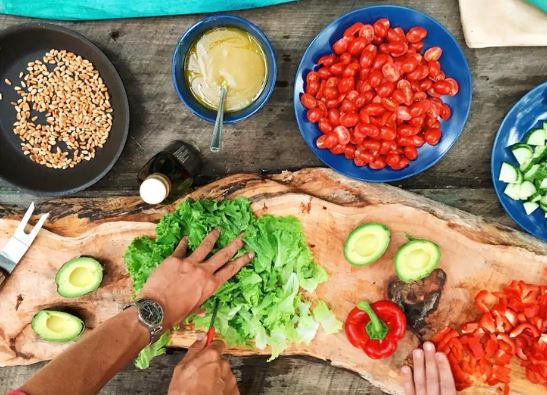Lifestyle
4 tips to follow while prepping meals to reduce the loss of nutrients

Everyone has their own way of cooking meals.
From boiling, sautéing and frying to grilling- the process and technique of cooking a meal vary from person to person.
Unfortunately, varied method of cooking contributes to the depletion of nutrients from the ingredients, if not taken care of properly.
From preserving fruits and veggies in the refrigerator after trimming to too much boiling- even the common ways of prepping meals lead to nutrient loss.
But with a couple of changes in your cooking method, you can preserve a significant nutritional profile in your meals while reaping the maximum benefits with each bite you have!
Here are certain tips to follow while prepping meals to reduce the loss of nourishing nutrients:
1. Limit the process of boiling
Vitamin A and other fat-soluble nutrients can easily be washed-out by excessive boiling. As per the experts, the longer the vegetables stay in the water, the higher the quantities of vitamins and minerals leach out and get into the water. Instead of boiling the veggies, make sure that you opt for other methods like streaming but for a shorter period of time as it also causes nutrient loss or you can use the water you utilised for boiling in your soups and stews instead of just draining it.
2. Pay towards washing the fruits and veggies
Make sure that you always rinse fruits and vegetables before you cut them. Washing the greens after you trimming or cutting can result in the shrinking of nutrients that are water-soluble. Also, wash the leafy vegetables thoroughly under the tap water to avoid consuming any kind of impurities. Similarly, don’t soak the foodstuffs in the water for too long as around 40% of nutrients are washed-out and remain in the water.
3. Thin peeling
The rind of varied fruits and veggies is rich in multiple nutrients like fibre. Ensure that you consume the fruits and vegetable skin that is edible as it is and those that call for peeling- unpeel it as thinly as you can so as to safeguard the nutritional profile. Fruits and veggies with edible skins or rinds can be consumed intact.
4. No fine chops
Finely cutting the fruits and veggies enhances the possibility of oxidation, flavour loss and damage to the nutritional profile. The reason behind this is that it takes a lot of time for fine chopping which keeps the external area in contact with the air and thus increases the risk of oxidization, donating in loss of nutrients and flavour.
Head to the kitchen by taking cues from the above-mentioned tips and change your techniques while cooking to make the most of your meal.










